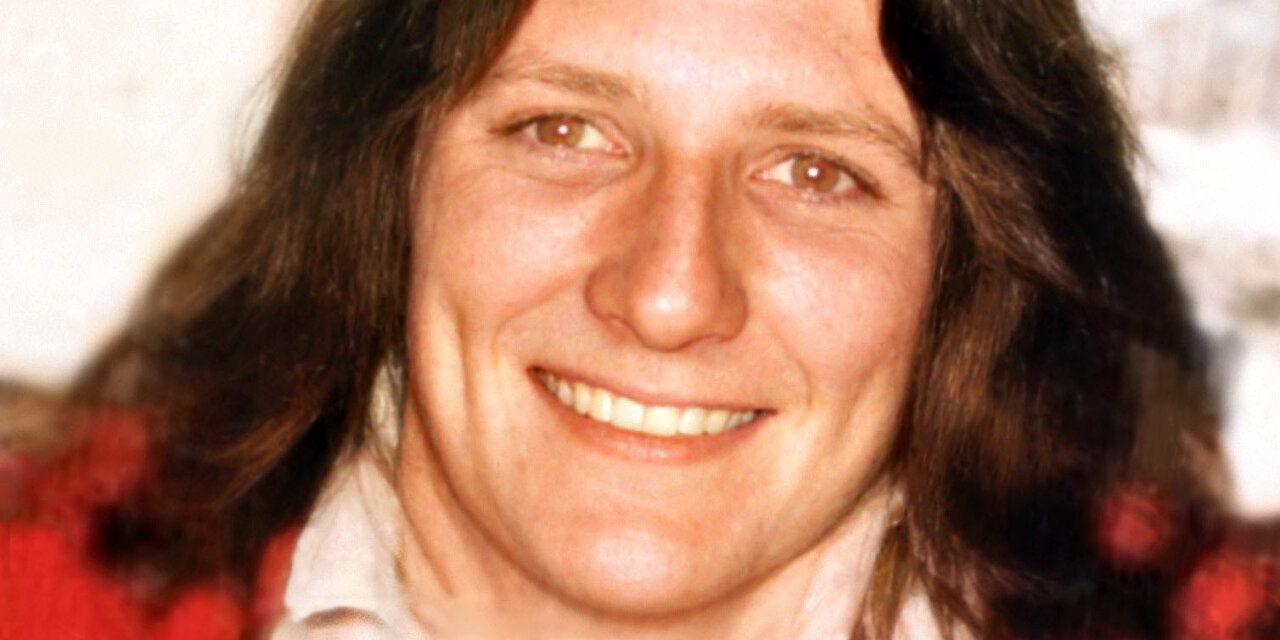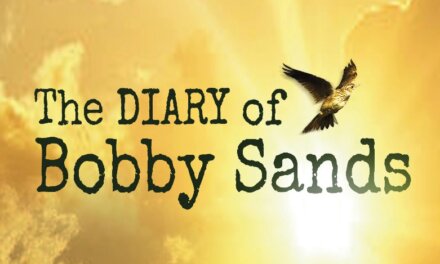Letters and poems of Bobby Sands continue to be discovered forty-three years after his death on hunger strike on 5 May 1981. Last September the legendary British peace campaigner and poet Pat Arrowsmith died at the age of ninety-three. Among her mementoes was a carefully-preserved letter (comm) from Bobby Sands, addressed to her from H-Block 6 on 17 August, 1979, forty-five years ago, which before her death she requested be donated to the Bobby Sands Trust. It will now be lodged in the archive in the National Library, Dublin.
Among the guest speakers at a London celebration of Pat’s life, on April 18, was the Mid-Ulster MP Francie Molloy, a veteran republican and one of the architects of Bobby Sands’ historic election victory in Fermanagh and South Tyrone on 9 April, 1981.
Pat Arrowsmith was committed to universal peace and justice. She was one of the organisers of the first anti-nuclear protest in Britain, the Aldermaston March in 1958, from which emerged the Campaign for Nuclear Disarmament (CND). She was also part of the civil disobedience movement led by Bertrand Russell in the early 1960s. She was imprisoned eleven times and was also force-fed while in jail. In 1974 she went on hunger strike in solidarity with the Price sisters, Gerry Kelly and Hugh Feeney.
In 1968, Pat organised and joined a team that went to the Vietnam-Cambodian border, and again in 1991 to the Middle East, sitting down in the desert to try and prevent conflict in the First Gulf War.
She was introduced to the issue of Ireland by the Dublin-born feminist and activist, Etain Madden, who was daughter of the Sinn Féin activist Claire Madden. Etain was also active in the Communist Party of Britain in Fulham and was, at that time, Vice Chair of Clan na Éireann. This was a time when many on the British left avoided Ireland. Ireland was presented by some as too complicated. As grubby and sectarian. As Pat said herself: ‘It was all very fine to be opposing all manner of horrendous oppression in other parts of the globe … and not to address English and Scots oppression in the Six Counties.’
Pat opposed the presence of British troops in Ireland and her longest prison sentences were for her action in support of that cause. In 1974, she was imprisoned for eighteen months for urging British soldiers on the streets of Belfast not to serve in the North. She stood for parliament several times (on one occasion against Labour Party PM James O’Callaghan) on a programme of ending the war in Ireland, and organised the work of the United Troops Out Movement. She also worked in support of prisoners in the H-Blocks.
Francie Molloy presented the letter to Danny Morrison, Secretary of the Bobby Sands Trust at An Fhuiseog, the bookshop on the Falls Road, which stocks most of the published writings of Bobby Sands.
In the letter, two years before the deaths of ten hunger strikers, Bobby predicts the death of prisoners unless the British Government reverts back to the agreement it had reneged on to pursue the cruel and ultimately futile policy of criminalisation:
17.8.79 H-Block 6
Hiya Pat! How are you? A bit of a surprise for you no doubt receiving this letter. Bu as I’m sure you know already by the cut of the stationery where its origin is—H-Block. Anyway, Pat, I’m Bobby Sands POW, H-Block 6, Long Kesh. I thought it maybe a change for you to hear at first hand from a blanket man in H-Block. So here I am. Anyway, Pat, things are much the same here, torturous. We’re still lying naked, save for the bit of torn, ragged blanket, upon damp pieces of foam for beds. It’s very cold already, it being only August. Our appearances seem to become more ghostly each day. We’re very thin, probably explained by the meagre amount of edible food that we get. Still being hosed down nearly every night by the screws. It’s been going on so long now! Believe it or not, one can almost adapt to it! The cell windows also have been blocked up, stemming the flow of air. We are almost three years on the protest now, many of us are physical wrecks due to the conditions in which we live in, with no exercise or fresh air. The usual searches, wing shifts and beatings continue, forcible bathing, hosing down etc etc. But still we resist & they torture. An interesting point I think you might like to hear is that possibly the biggest percentage of screws here are ex-soldiers, ex-RUC men, UDR etc. I think the large wage incentives and comparative safety of living inside the prisons being preferable to walking the streets of Belfast is the attraction. But I suppose the work is all the same—oppression. Besides, it’s much easier in here to get away with it. Anyway, Pat, we heard there was 10,000 at the London march & we were quite pleased to hear it. Also, after hearing reports from the Belfast march the morale is quite high. Well, we’re pushing as best we can on the propaganda front. I’ll include a few more things that perhaps you could use. If you can, Pat, drop us a wee note and let us know how things are going for you. You could send it through the H-Block Info Bureau, the Falls Road, Belfast. Also, Pat, if you could, could you enclose the names & addresses of anyone who you think it would be worthwhile to write to if only to inform them of H-Blocks & Ireland, or to seek their help, whether they be approachable or unapproachable. Every little bit helps, as they say. At the minute that could not be more true because if things continue here someone of us will surely die. Anyway, I’m glad to get this chance to write to you and if at all possible I will do so again if you don’t mind, to let you know how things are here. I would also like to thank you and all the members of the U.T.O.M for the great work that you have done in the past and continue to do. Perhaps victory shall be ours soon. Sealadaigh abu. See you! Bobby Sands POW, H-Block 6






